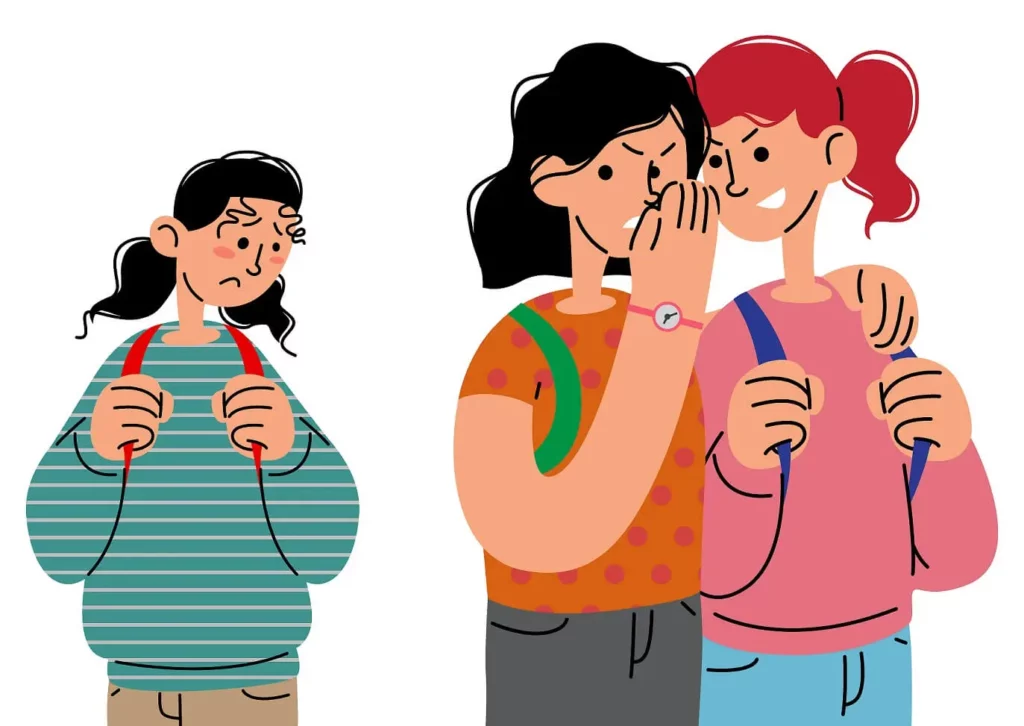How to Help a Teen Who Has Few (To No Friends) Now That School is in Full Swing – Updated 2023

You thought things might be different this year and you hoped your teenager’s friendship would get better. Your teen has struggled with friendships over the years, but now the social isolation seems even worse. You watch him sulk around the house because there’s no one to hang out with, confide in, share secrets with, or laugh with. Watching your teen on the periphery, trailing behind other kids during social gatherings can be utterly heartbreaking.
Friendships are critical to a person’s mental health. In addition to companionship and entertainment, healthy friendships are the foundation for building independence.
If you see your teen struggling to make friends or getting rejected by other kids, don’t hang back. There’s a lot you can do to help your teen build and practice the skills to make one or two really close friends. And that’s all anybody really needs.
How To Help Your Teen Make Friends At School
For teenagers with ADHD and executive function weakness, making friends might not be easy or intuitive. Many people mistakenly think that making friends should be easy but for many teens (and adults too) it’s just not that simple. Your teen needs a road map. And that’s where you can help.
Making friends comes from having shared experiences with other teens who share their interest and who they can relate to. Proximity has also been shown to help people make friends. Thinking about being brought together over and over at drama or track practice. This shared experience allows teens to bond, feel each other out, learn about each other all of which is the doorway to friendship.
This is true even when it happens virtually.
In 2000, Deb Levine* found that being at the same place at the same time helps build friendship. Simply being around people on a regular basis increases your odds of making new friends. It’s also true that with more exposure to people, your teen will learn what to expect from those people.
Friendships happen more easily when people are both comfortable and confident. Being around someone on a regular basis increases both. Your teen is more likely to take a risk and talk with someone they have been in an easy situation with vs talking to a total stranger.
So the real key that matters most is participation. Participating in activities means that your teen is exposed over and over again to sharing experiences with potential friends. It’s not a guarantee, but without participation it’s harder for teens to make friends.
Some teens resist participating because it’s not easy for them. But as parents it’s worth encouraging your child to find activities they enjoy and supporting their efforts to join in so friendships can blossom.
How Teens Make Friends
Teenagers move in groups. Developmentally, the goal of this time in their lives is to become independent. Part of this independence comes from teens orchestrating and handling relationships on their own. They don’t want Mom or Dad “as” involved as before.
That is, until it comes to conflicts. Many teens simply haven’t grown the skills to handle conflict, problem solve with friends or to manage tough communication. And that’s where you want to be on the lookout to offer support once it’s asked for.
Because teen friendship is organized on social media and texting, parents are inherently left out of the communication. Unlike elementary school, you won’t see the challenge brewing. Instead, your teen will just be left off text chains or not invited to social gatherings and as a parent, you won’t likely see this happening until it’s a problem. So when your kid brings these issues to you, know that you’re stepping in mid-conversation. There’s a lot to listen to before you really have the full story.
And, it’s also important to know that tech is part of the social landscape for teens. That means making friends requires getting on the text chains or social media accounts so your teen can socialize and interact with others. Encouraging participation is important if you see that your teen has few to no friends or if they are struggling to find something they enjoy participating in. For teens with weak executive function responding and keeping up with friends takes a lot of organization and may not be easy for them. They may need routines, support and reminders.
None of this is easy, I know. But, this is the shifting landscape of teenage years to early adulthood. Being patient as you watch your teen navigate friendships is a hard pill for many parents to swallow, but it’s necessary.
Is my teen’s resistance to making friends a behavioral change?
Around puberty, some kids develop social anxiety and start to worry a lot about what other people think of them. Kids with social anxiety will often avoid socializing when they are worried about embarrassing themselves or feel a strong need to be perfect and not make mistakes.
A teen that is isolating from their peers is different from one who is being bullied. With a rising number of young adults being diagnosed with mental health disorders, it is vital that parents are aware of the warning signs of mental health issues as their children mature.
If your teen’s isolation and withdrawal from friends and social activities is a sudden change in behavior, it may be a sign of depression or anxiety. If you are concerned, seek out an evaluation by a mental health professional. Social skills building will not work if the mental health concerns are not treated first.
If there’s no evidence of bullying or an emotional disorder, the following are ways you can help.
Here are 9 Ways to Help Your Teen When they Have Few or No Friends To Turn Things Around
Learning how to form successful peer relationships is a critical skill that we all use – and — and refine — all our lives. Not everyone can be the leader, and many kids are hesitant in social situations.
There are several social skills everyone needs to succeed in life and to manage school, friends, projects and eventually the workplace. For instance, many kids adapt more easily to a social situation by first scanning the environment and then adjusting their behavior to meet the needs of the situation.
#1 Don’t jump in and “fix it”
Avoid the temptation to jump in and “fix” things, which sends the message that you are questioning your teen’s competency. Gently gaining your child’s trust is the best way to begin a conversation about a painful subject.
#2 Open up communication
Teens are notoriously difficult to converse with, but do your best to understand their social landscape. No matter what your teen says, empathize and try to stay calm. For instance, your teen may say, “This girl says cruel stuff to me in front of others, and no one stands up for me.”
Listen to the full story and then summarize and repeat back what you heard. Allow your teen to interpret your summary, and then share more and clarify their thoughts. By trying to understand your teen’s perspective, you invite them to be comfortable opening up to you.
One of the most important jobs of parenthood is to offer support. Let your teen know they can always talk to you about their concerns and that you want to be a source of comfort and encouragement in their life. Having a strong foundation of love and support at home can give your child the courage they might need to talk to a new classmate or start playing a new sport after school.
#3 Identify the root cause
In order to truly help address your teen’s loneliness, you must first determine what social skills are holding them back. Be sure to check your own biases before encouraging your teen to become more involved in activities. You may have been popular, but now you must honestly access what’s getting in the way of making friends. Ask yourself, “Can my teen make new friends? Could he or she join and collaborate with a group?”
#4 Talk about friendship
Discuss what makes a good friend, how they choose friends and what their interests are and who else shares those interests. Ask your teen how a friend makes them feel. Does a particular friend make your teen feel valued?
#5 Talk about change and transitions
We usually surround ourselves with people who share our interests. A change in interests is no one’s fault. New sports, groups, social circles can often translate into new friendships. Your teen, or your teen’s friends, may choose to start new activities, which will probably translate into spending less time together. If your teen expresses feelings of abandonment, explain that people and interests change, and that it’s healthy to pursue new things.
It’s okay to miss that friend, it’s just going to take a little more work to schedule seeing each other.
#6 Get them involved in activities
Encourage your teen to become involved in a sport or other activity but don’t push too hard. When kids are already struggling, forcing them against their will isn’t a good way to gain cooperation, particularly with teens who are trying to become more independent. Instead, suggest three potential activities and together evaluate each one. It’s enough to find just one thing they like to do once a week.
The goal is to both encourage socialization and to help them discover their interests. Everyone needs a place where they shine and it will give him something to look forward to. Plus, built-in structure can help reduce anxiety.
Help keep things going. If you have a car, offer to drive your child to social events and activities. Or let your child invite a friend on family outings.
#7 Praise their effort
Take every opportunity to praise your teen when you see them using friendship skills effectively. Reassure your child that you love them and that everyone struggles with something.
This will give your child the confidence to continue to use and perfect their social skills. And don’t stress if they don’t “believe” you, sometimes kids need to hear your praise over and over again. It’s good for their hearts, and their self-esteem.
#8 Model good behavior
Be sure to model how to pay attention to others and resolve conflicts calmly when talking to friends and family members.
#9 Tell your child that you believe in them and they can do this
The most important thing is to keep communication flowing between you and your child without taking an authoritarian approach.
Raising teens isn’t easy. Even the healthiest parents struggle from time to time. But when your child is struggling to make or keep friendships, it’s important to support your child with kindness, skills and direction. And of course love.
If I can help you, please don’t hesitate to reach out.
* Levine, D. (2000). Virtual attraction: What rocks your boat. Cyberpsychology & Behavior, 3(4), 565–573. doi:10.1089/109493100420179



